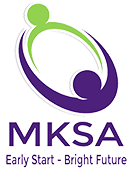Potty training is one of many significant childhood rites of passage. As with all milestones, some children meet them early, some later, and many in the wide range of normal in between both extremes. Most children however, show an interest in potty training around the age of 2. The process may be quick or it may take some time, but there are some general tip-offs that your child is ready. Throughout this gloriously frustrating process are many questions. Compiled below are some of the more common potty training questions and answers. If you have specific concerns, please speak with your child’s pediatrician first.
1. When do most children learn to use the toilet?
While most children can begin potty training by age 2, it is important to remember that each child is an individual and develops at his own rate. Generally speaking, you can expect your child to achieve daytime control sometime between ages 2 and 3, and nighttime control between ages 3 and 4-1/2.
2. What are the signs of readiness for potty training?
Some—but not necessarily all—of the following are signs: pausing and making sounds and grimaces when having a bowel movement, being regular in bowel movements, staying dry for an hour or two in the daytime, waking up dry from a nap, complaining when wet or soiled, being aware that urine and feces come from his body, telling the parent when he has had or is having a bowel movement, wanting to imitate adults and be grown up, being able to undress/dress by himself and being able to understand/follow directions.
3. How can I prepare my child for potty training?
During your everyday activities, point out when he is having a bowel movement or is urinating; teach him that urine and feces come from the body; teach him the words you want to use for bathroom functions; allow him to observe others using the toilet; and read books about toilet training.
4. What should I do about accidents?
Accidents will happen—and are to be expected. Be relaxed about them. Express no anger or disapproval; don’t scold, shame or punish him. You might say “Oh, your pants are wet. Let’s change into some dry ones.” Clean up calmly and reassure him that “next time you’ll remember to use the potty.”
5. If my child has been clean and dry for a while and suddenly begins having many accidents, what should I do?
Regressions to wetting and/or soiling are not uncommon in toddlers and are usually a reaction to stress. Look for sources of pressure in the child’s life—separation from a parent, a new baby, starting nursery school, moving, etc.—and try to ease tension by providing reassurance. If this persists, speak with your pediatrician.
6. What are the best words to use for potty training?
Think carefully about the words you teach your child for body parts, urine and bowel movements. Not only will you hear these words daily throughout the preschool years, but he is sure to repeat them often to relatives, neighbors, teachers and friends. Be sure to use words you want to hear frequently!
To encourage a healthy body image, use anatomically correct names for all body parts. When an elbow is an elbow, but a penis is a “weenie,” children often wonder why one part of their body is so special that it can’t be called by its real name. On the other hand, most people don’t use terms like “urine” or “feces” to explain their bathroom needs. “Pee pee,” “wee wee,” “wet,” and “tinkle” are more commonly understood childhood descriptions of urination, while “poo poo,” “doo doo,” “BM,” “poop,” and “doody” are the usual choices for a bowel movement. In addition, simply saying “going potty” can be confusing to a child because it doesn’t differentiate urination from defecation.
7. What should I do about my child wetting the bed?
This is a common problem for many young children. They often are very sound sleepers and have small bladders that can’t hold all of the urine made during the night. Suggestions include:
-limit the amount of liquids your child drinks 2 hours before bedtime
-have your child try to use the toilet just before going to bed and as soon as he wakes up
-cover the child’s mattress with a rubber pad
-praise him when he stays dry
-respond gently when he does have an accident; getting angry doesn’t help either of you
-tell him to use the toilet if he wakes up in the middle of the night; remind him he can come and get you for help
8. What books can you recommend for toilet learners?
No More Diapers! by Jo Graham Brooks, MD
Once Upon a Potty by Alona Frankel
Going to the Potty by Fred Rogers
Potty Time! by Betty Reichmeier
Everyone Poops by Taro Gomi
Uh Oh! Gotta Go! by Bob McGrath
I Have to Go: Featuring Jim Henson’s Sesame Street Muppets by Anna Ross
9. Any other last words of encouragement for parents/caregivers?
It’s important to remember that potty training is a process, not a race. Children need extra patience and positive reminders during this time. Accidents and regressions are normal. Potty training is a natural development and cannot be rushed; this is just one step of many important life skills to be learned. Our job as parents/caregivers is to give children confidence to achieve success not only here but in all aspects of development. For more information on child development, visit www.mksallc.com. Good luck!
